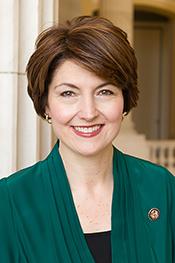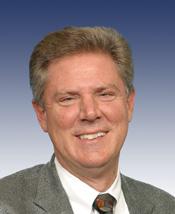0
0
0
To amend the Communications Act of 1934 to extend the authority of the Federal Communications Commission to grant a license or construction permit through a system of competitive bidding.
12/15/2023, 3:54 PM
Summary of Bill HR 1108
Bill 118 hr 1108, also known as the "Federal Communications Commission Competitive Bidding Extension Act," aims to amend the Communications Act of 1934 to extend the authority of the Federal Communications Commission (FCC) to grant licenses or construction permits through a system of competitive bidding.
The bill seeks to allow the FCC to continue using competitive bidding as a method for allocating licenses and permits for the use of the public airwaves. This competitive bidding process helps ensure that these valuable resources are allocated efficiently and fairly, while also promoting competition in the telecommunications industry.
By extending the FCC's authority to use competitive bidding, the bill aims to promote innovation, investment, and consumer choice in the telecommunications sector. It also helps prevent monopolies or anti-competitive behavior by ensuring that licenses and permits are awarded based on merit and not on political influence or other factors. Overall, Bill 118 hr 1108 is designed to modernize and improve the regulatory framework governing the allocation of licenses and permits for the use of the public airwaves, ultimately benefiting consumers and promoting a more competitive and innovative telecommunications industry.
The bill seeks to allow the FCC to continue using competitive bidding as a method for allocating licenses and permits for the use of the public airwaves. This competitive bidding process helps ensure that these valuable resources are allocated efficiently and fairly, while also promoting competition in the telecommunications industry.
By extending the FCC's authority to use competitive bidding, the bill aims to promote innovation, investment, and consumer choice in the telecommunications sector. It also helps prevent monopolies or anti-competitive behavior by ensuring that licenses and permits are awarded based on merit and not on political influence or other factors. Overall, Bill 118 hr 1108 is designed to modernize and improve the regulatory framework governing the allocation of licenses and permits for the use of the public airwaves, ultimately benefiting consumers and promoting a more competitive and innovative telecommunications industry.
Congressional Summary of HR 1108
This bill extends through May 19, 2023, the authority of the Federal Communications Commission to conduct auctions for electromagnetic spectrum licenses. (The authority currently expires on March 9, 2023.)
Read the Full Bill
Current Status of Bill HR 1108
Bill HR 1108 is currently in the status of Introduced to Senate since February 28, 2023. Bill HR 1108 was introduced during Congress 118 and was introduced to the House on February 21, 2023. Bill HR 1108's most recent activity was Referred to the Subcommittee on Communications and Technology. as of March 3, 2023
Bipartisan Support of Bill HR 1108
Total Number of Sponsors
1Democrat Sponsors
0Republican Sponsors
1Unaffiliated Sponsors
0Total Number of Cosponsors
2Democrat Cosponsors
2Republican Cosponsors
0Unaffiliated Cosponsors
0Policy Area and Potential Impact of Bill HR 1108
Primary Policy Focus
Science, Technology, CommunicationsPotential Impact Areas
- Licensing and registrations
- Radio spectrum allocation
Alternate Title(s) of Bill HR 1108
To amend the Communications Act of 1934 to extend the authority of the Federal Communications Commission to grant a license or construction permit through a system of competitive bidding.
To amend the Communications Act of 1934 to extend the authority of the Federal Communications Commission to grant a license or construction permit through a system of competitive bidding.
Comments
Sponsors and Cosponsors of HR 1108
Latest Bills
Providing amounts for the expenses of the Committee on Ethics in the One Hundred Nineteenth Congress.
Bill HRES 131December 12, 2025
Providing for congressional disapproval under chapter 8 of title 5, United States Code, of the rule submitted by the Bureau of Land Management relating to "Central Yukon Record of Decision and Approved Resource Management Plan".
Bill HJRES 106December 12, 2025
Expressing the sense of the House of Representatives in condemning the Government of the People's Republic of China for its harassment and efforts to intimidate American citizens and other individuals on United States soil with the goal of suppressing speech and narratives the People's Republic of China finds unwelcome.
Bill HRES 130December 12, 2025
Providing for congressional disapproval under chapter 8 of title 5, United States Code, of the rule submitted by the Bureau of Land Management relating to "North Dakota Field Office Record of Decision and Approved Resource Management Plan".
Bill HJRES 105December 12, 2025
Providing for congressional disapproval under chapter 8 of title 5, United States Code, of the rule submitted by the Bureau of Land Management relating to "Miles City Field Office Record of Decision and Approved Resource Management Plan Amendment".
Bill HJRES 104December 12, 2025
Providing amounts for the expenses of the Select Committee on the Strategic Competition Between the United States and the Chinese Communist Party in the One Hundred Nineteenth Congress.
Bill HRES 104December 12, 2025
Critical Access for Veterans Care Act
Bill S 1868December 12, 2025
OATH Act of 2025
Bill S 1665December 12, 2025
A bill to extend the authority for modifications to the Second Division Memorial in the District of Columbia.
Bill S 1353December 12, 2025
Saving Our Veterans Lives Act of 2025
Bill S 926December 12, 2025
A bill to amend the Communications Act of 1934 to extend the authority of the Federal Communications Commission to grant a license or construction permit through a system of competitive bidding.
Bill S 650December 15, 2023
To amend the Communications Act of 1934 to extend the authority of the Federal Communications Commission to grant a license or construction permit through a system of competitive bidding.
Bill HR 3345February 5, 2024

